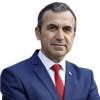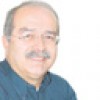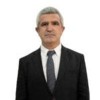A MOSAIC Approach to Afghanistan: Controversy and Opportunity
Co-authored by Omar Samad (Amb.) and Dr. Mujib Abid
Last week, the United Nations introduced the MOSAIC plan at the Security Council session on Afghanistan. Officials and diplomats are now considering this new approach following months of consultations and offline briefings with a broad array of international stakeholders and some Afghans from inside and outside the country – representing the de facto authorities, civil society, private sector, advocacy groups and activists.
According to insiders, the initiative has faced mixed reviews. Some countries, human rights groups and activists in the diaspora say that the plan lacks “genuine inclusion” and risks “legitimizing” the Taliban as a de jure state entity.
The plan itself is a significant development, indeed, which plays out against a broader debate in the international community and amongst Afghans themselves as they reckon with the realities of post-Taliban Afghanistan. Soon it will be four years since the Taliban’s return to power in Afghanistan and yet, the international community and Afghans themselves seemingly remain trapped in a cycle that does not bode well for the people Afghanistan. It goes from the extreme binaries of condemnation or uncritical embrace, on the one hand, to disengagement and uncertainty, on the other.
But disengagement or uncertainty, ambiguous as they’re by their very nature, are not neutral acts – they create their own dynamics, shaping the course of conflict and prolonging humanitarian crisis and abject suffering in Afghanistan.
It is important to make some observations about engagement – the word “ta’aamol” has taken roots among Afghans as a stand in term. What is the politics of engagement? And with what type of a power?
There are some promising new leads in recent scholarship that, in shedding light on the evolving nature of the Taliban, can prove productive (indicatively, see: Abid 2025; Zaland 2023; Abbas 2024). Abbas’s The Return of the Taliban (2024), the first book-length analysis of its kind, merits particular attention. He believes “Taliban 3.0” embody significant shifts from their earlier iterations. While still ideologically rigid, this new Taliban........



























































































































































 Ahmet Maranki
Ahmet Maranki Namık Tan
Namık Tan Ertuğrul Türkoğlu
Ertuğrul Türkoğlu Yılmaz Özdil
Yılmaz Özdil Alparslan Türkoğlu
Alparslan Türkoğlu Arslan Bulut
Arslan Bulut Saygı Öztürk
Saygı Öztürk Necati Doğru
Necati Doğru Mustafa Mutlu
Mustafa Mutlu Naim Babüroğlu
Naim Babüroğlu Emin Çölaşan
Emin Çölaşan Orhan Uğuroğlu
Orhan Uğuroğlu Rahmi Turan
Rahmi Turan Dış Haberler Servisi
Dış Haberler Servisi Emre Kongar
Emre Kongar İpek Özbey
İpek Özbey Deniz Zeyrek
Deniz Zeyrek Murat Muratoğlu
Murat Muratoğlu Uğur Dündar
Uğur Dündar Olaylar Ve Görüşler
Olaylar Ve Görüşler Korkusuz Kalem Osman Ferit
Korkusuz Kalem Osman Ferit Can Coşkun
Can Coşkun Ali Karahasanoğlu
Ali Karahasanoğlu Soner Yalçın
Soner Yalçın Barış Terkoğlu
Barış Terkoğlu İsmet Özçelik
İsmet Özçelik Orhan Bursalı
Orhan Bursalı Timur Soykan
Timur Soykan Zülâl Kalkandelen
Zülâl Kalkandelen İsmail Saymaz
İsmail Saymaz Memduh Bayraktaroğlu
Memduh Bayraktaroğlu Mehmet Ali Güller
Mehmet Ali Güller Ruşen Çakır
Ruşen Çakır Çiğdem Toker
Çiğdem Toker Damla Doğan Tuncel
Damla Doğan Tuncel Ergin Yıldızoğlu
Ergin Yıldızoğlu İsmail Türk
İsmail Türk Metin Yılmaz
Metin Yılmaz Bêjdar Ro Amed
Bêjdar Ro Amed Fuat Uğur
Fuat Uğur Can Ataklı
Can Ataklı Mehmet Y. Yılmaz
Mehmet Y. Yılmaz
